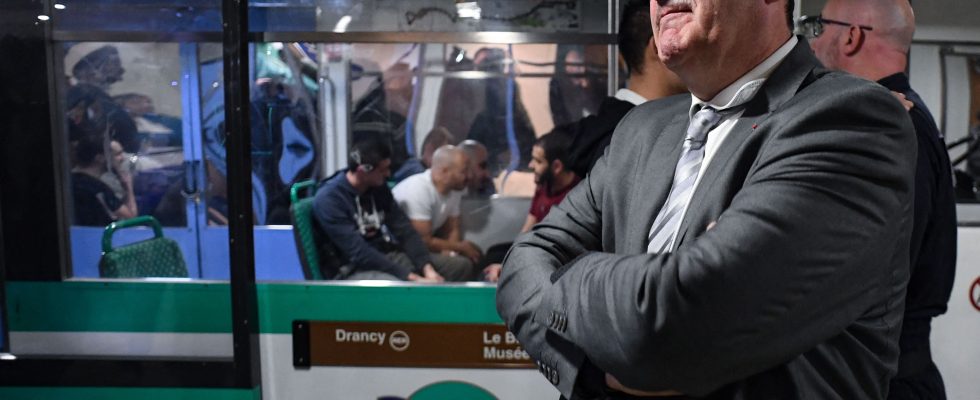Despite a recovery in its activity in the Paris region, RATP remains in the red in 2023, for the second consecutive year, according to results published this Friday March 8. The company headed by Jean Castex is now banking on the success of the Olympic Games, during which the efficiency of transport will be particularly scrutinized. State of play.
RATP still in the red
The year 2023 ended with a net loss of 109 million euros for the public transport group, larger than the 26 million in 2022. Turnover increased by 7.2% to reach 6 .5 billion euros, driven both by the public commercial establishment (Epic, +6%) – transport in Ile-de-France – and the subsidiaries (+10%). “If our results remain, as in 2022, heavily penalized by the high level of inflation, in particular on the price of electricity, the underlying trends are encouraging”, wanted to put into perspective the CEO of the group, Jean Castex, quoted in a statement.
Epic, which represents three quarters of turnover, posted balanced accounts with a slight net profit of 18 million euros, down compared to 2022 (98 million euros). RATP underlined “the massive impact of inflation on production costs (+396 million euros)”, only managing to turn green thanks to an extension granted at the end of last year by the organizing authority Ile-de-France Mobilités (IDFM) and exceptional aid from the State.
Interest for employees
IDFM in fact signed an amendment in December to the contract linking it to RATP providing for an extension of 285 million euros (including 125 for the year 2023) in respect of the salary increases granted by Jean Castex to his agents. The State paid it 50 million euros in aid to cover the financial damage suffered by the company during the Covid-19 pandemic. The balanced accounts should allow the Régie to pay profit-sharing to the group’s employees in Ile-de-France – estimated at around 1,000 euros by the unions. The latter, and in particular FO, the leading union among metro drivers, had posed the threat of social movements in the event of non-payment of profit-sharing in 2024.
Outside of its Ile-de-France region, the RATP subsidiaries and in particular RATP Dev posted a loss of 127 million euros. For two thirds, this loss is due to the activity of London buses, largely in deficit due to operating problems and even more severe inflation across the Channel. RATP has started a process of disengagement from this activity since 2022 but has still not found a buyer. In the future, it intends to concentrate on markets with greater potential, such as the operation of automatic metros – which it already does in Sydney.
Resumption of passenger traffic
In Ile-de-France, passenger traffic continued to rise in 2023 after the shock of the pandemic (+4.3%). The return to the pre-Covid offer in the metro, the recovery of the bus offer, as well as the rebound in tourism thanks in particular to the Rugby World Cup have contributed to this. Despite everything, ridership in Parisian transport remains down 14% compared to 2019. Strikes against pension reform and riots at the beginning of July slowed down the return of travelers.
Projects for 2024
For 2024, RATP has not communicated financial objectives. But she obviously has her eyes turned towards the Olympic Games, organized in Paris from July 26 to August 11. “The RATP group will have to face major challenges in 2024”, indicates the company which “which will involve exceptional mobilization of the company to ensure the reception and transport of spectators to the Olympic sites”. The public company will inaugurate new infrastructures this year such as the extension of line 11, that of the T3b tramway but above all, line 14 to Orly airport, which will serve both the Olympic village and the Stade de France. Its delivery is expected for June, barely two months before the opening of the competition.
